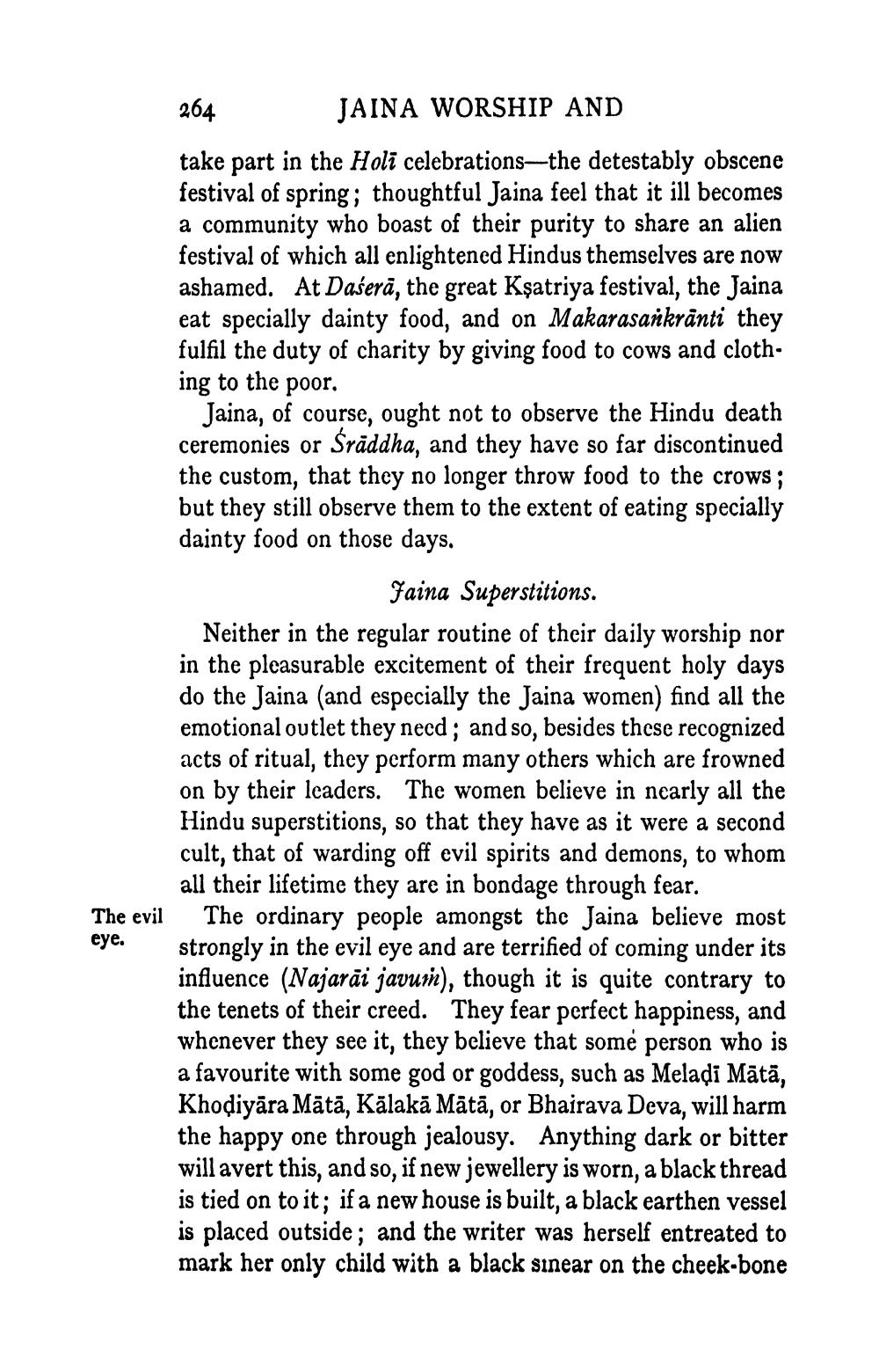________________
or
264 JAINA WORSHIP AND take part in the Holi celebrations—the detestably obscene festival of spring; thoughtful Jaina feel that it ill becomes a community who boast of their purity to share an alien festival of which all enlightened Hindus themselves are now ashamed. At Daserā, the great Kşatriya festival, the Jaina eat specially dainty food, and on Makarasankranti they fulfil the duty of charity by giving food to cows and clothing to the poor.
Jaina, of course, ought not to observe the Hindu death ceremonies or Śräddha, and they have so far discontinued the custom, that they no longer throw food to the crows; but they still observe them to the extent of eating specially dainty food on those days.
Faina Superstitions. Neither in the regular routine of their daily worship nor in the pleasurable excitement of their frequent holy days do the Jaina (and especially the Jaina women) find all the emotional outlet they necd; and so, besides these recognized acts of ritual, they perform many others which are frowned on by their leaders. The women believe in nearly all the Hindu superstitions, so that they have as it were a second cult, that of warding off evil spirits and demons, to whom
all their lifetime they are in bondage through fear. The evil The ordinary people amongst thc Jaina believe most eye.
strongly in the evil eye and are terrified of coming under its influence (Najarāi javuin), though it is quite contrary to the tenets of their creed. They fear perfect happiness, and whenever they see it, they believe that some person who is a favourite with some god or goddess, such as Meladi Mātā, Khodiyāra Mātā, Kālakā Mātā, or Bhairava Deva, will harm the happy one through jealousy. Anything dark or bitter will avert this, and so, if new jewellery is worn, a black thread is tied on to it; if a new house is built, a black earthen vessel is placed outside; and the writer was herself entreated to mark her only child with a black sinear on the cheek-bone




